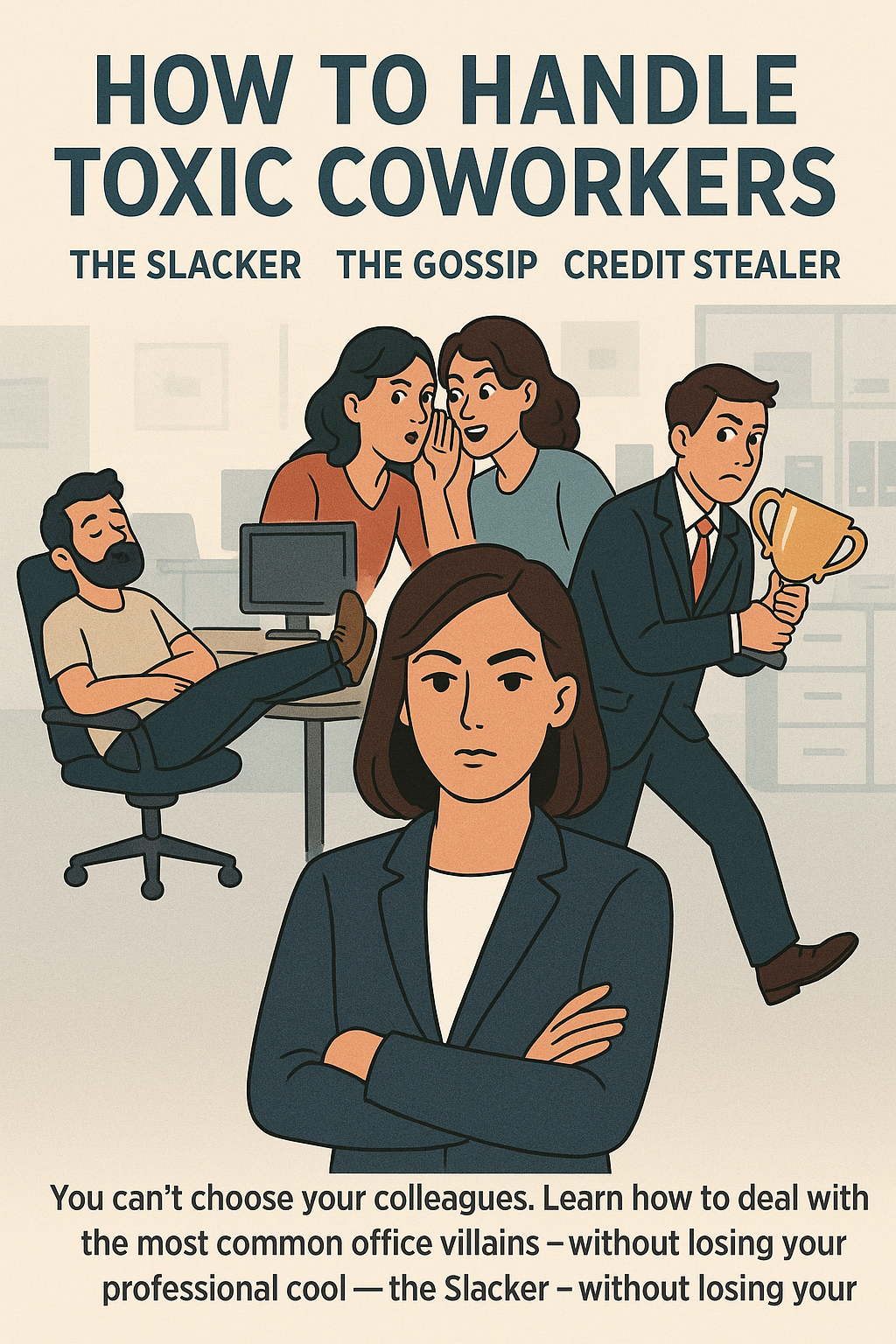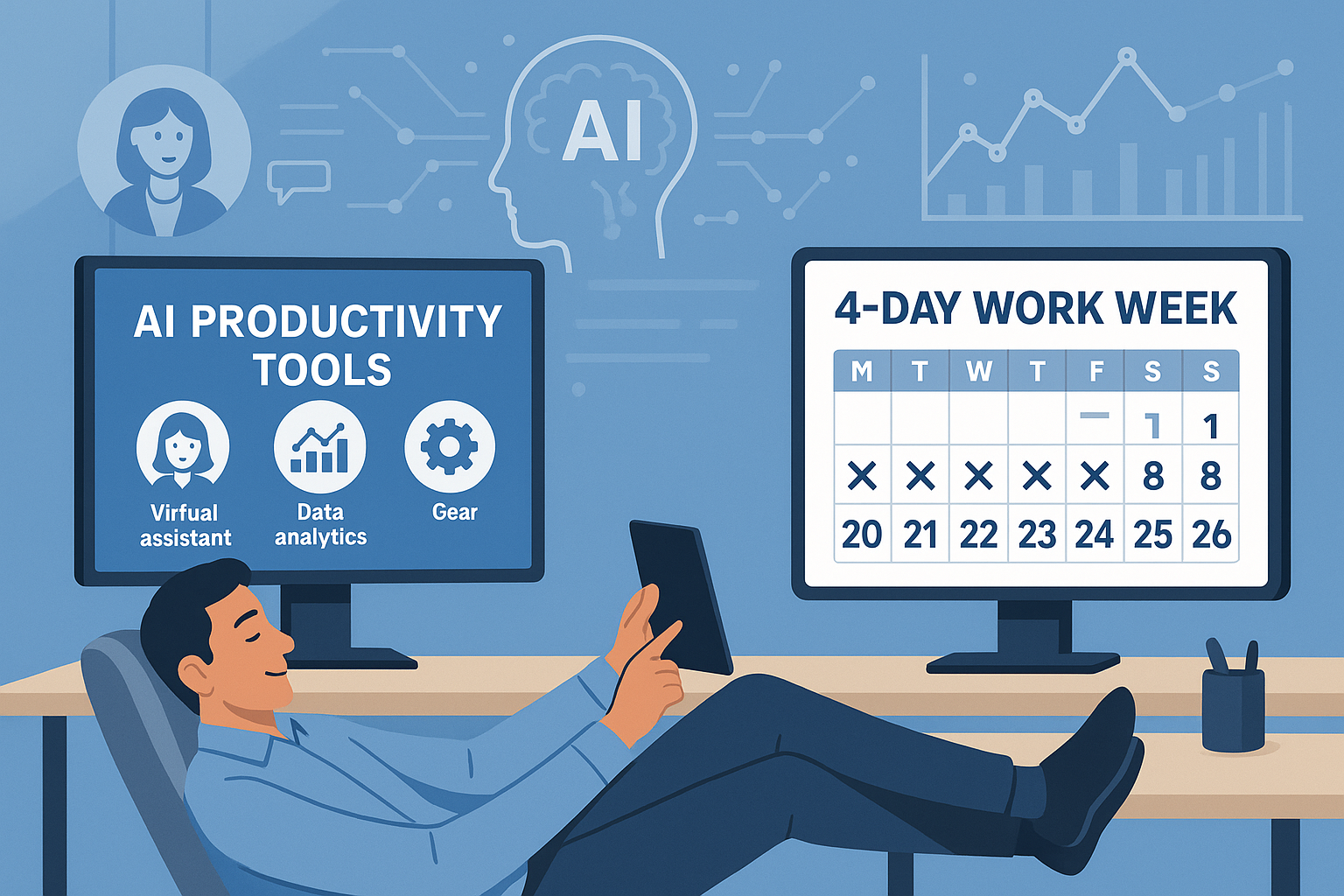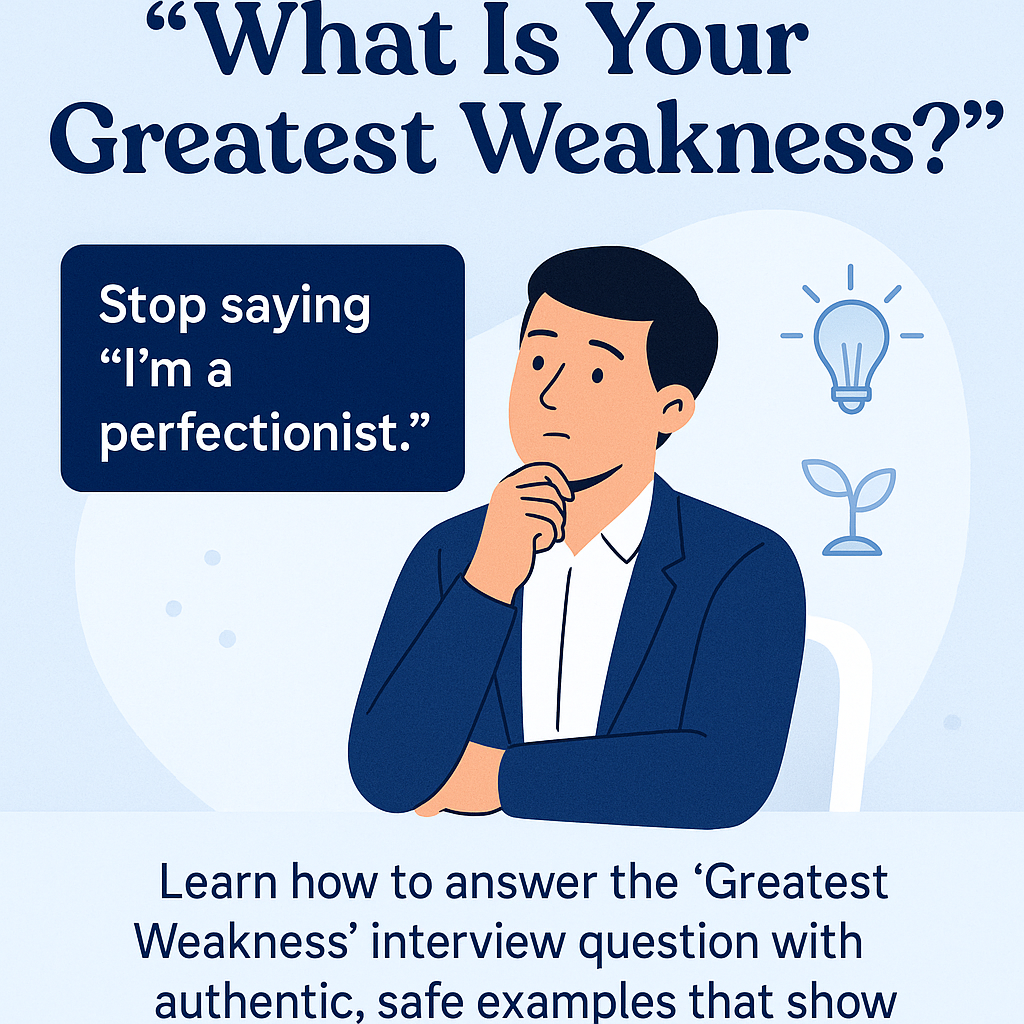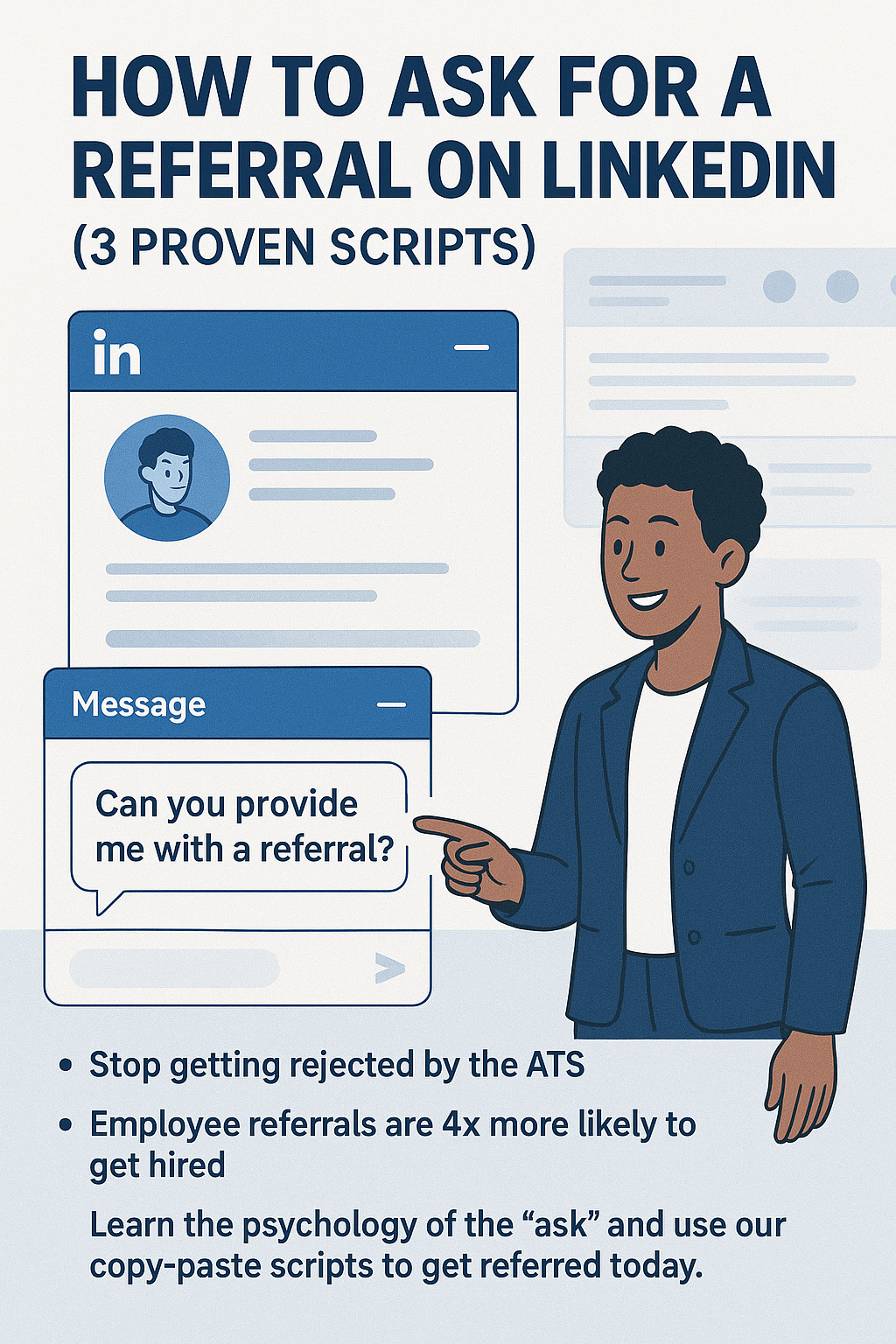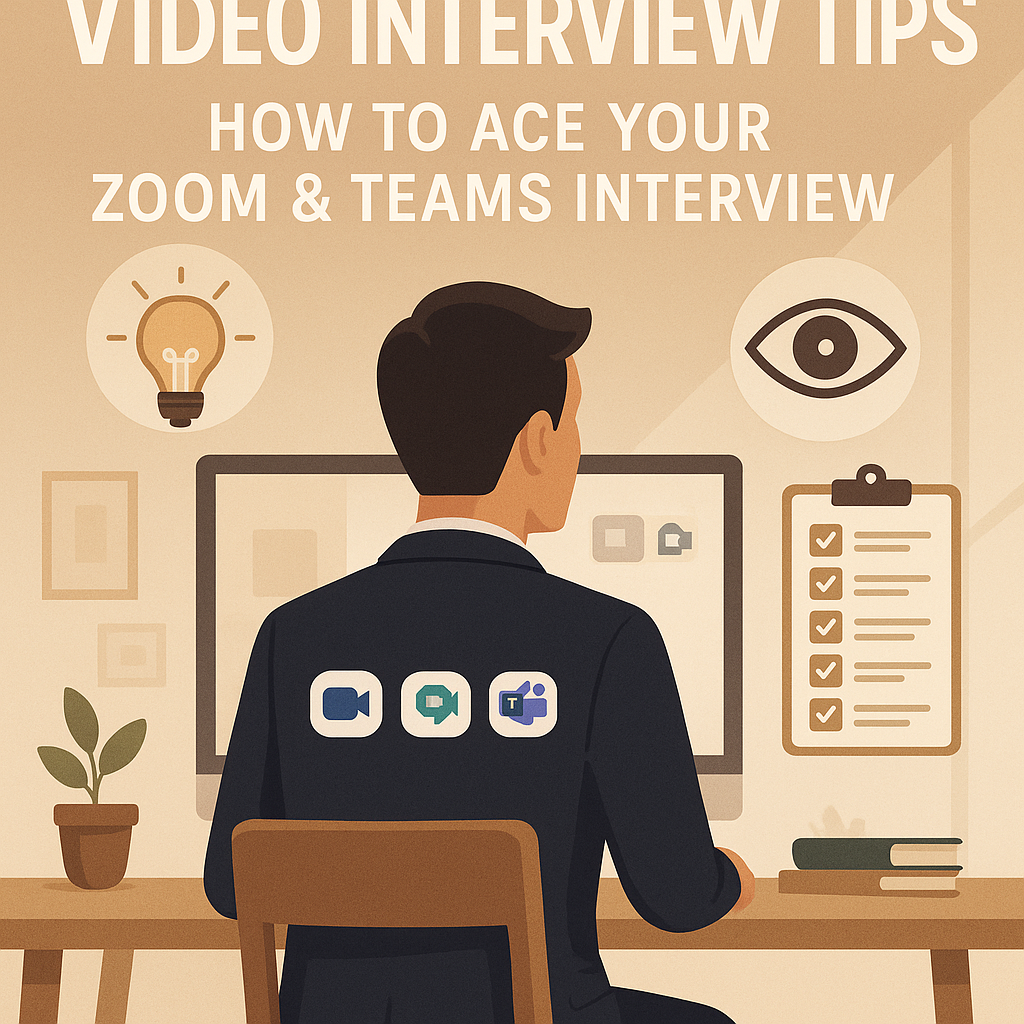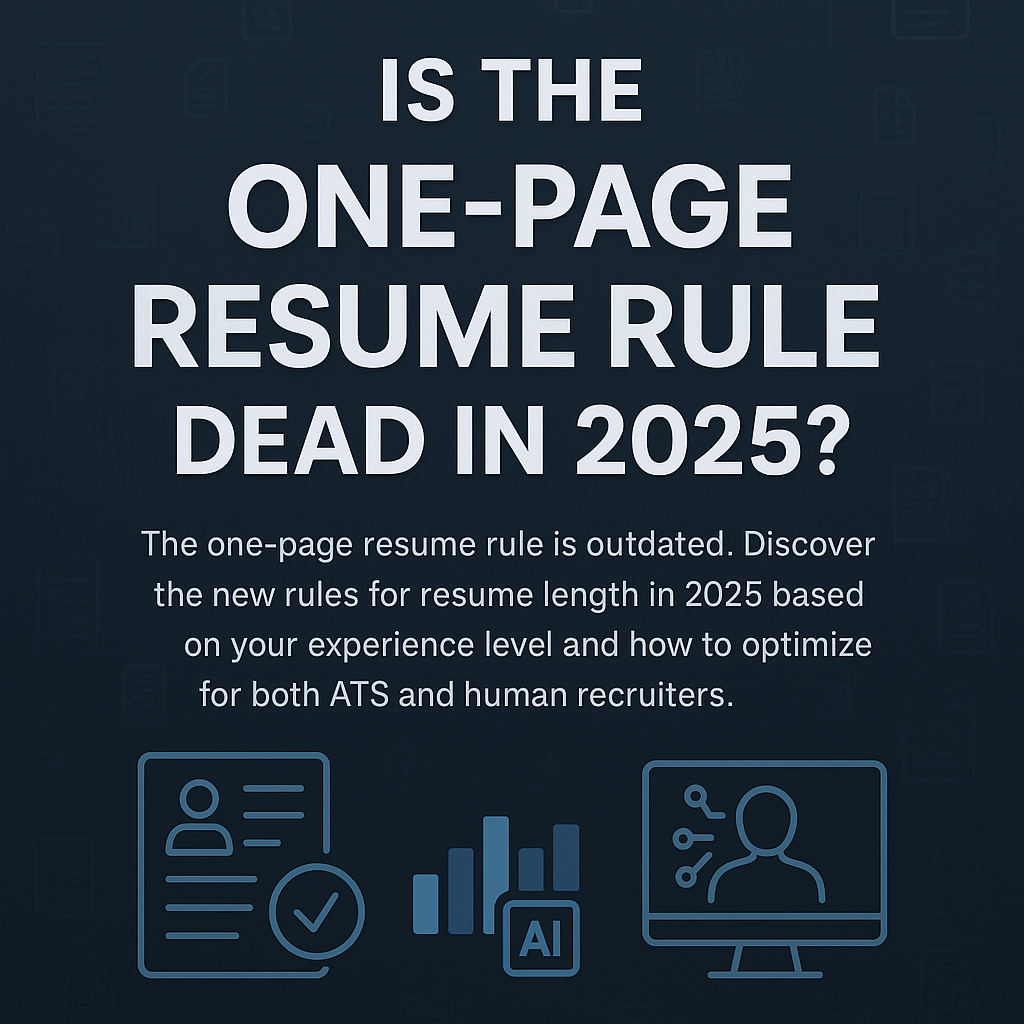
"One-Page Resume": Is This Still the Golden Rule in 2025?
For decades, it has been the unquestionable commandment of job searching, whispered from career counselors to anxious graduates and seasoned professionals alike: "Keep your resume to one page."
This advice was simple, absolute, and became a source of immense stress. We've all been there—tinkering with margins, shrinking fonts to an almost unreadable size, and agonizing over which incredible achievement to cut, all in service to this sacred, single sheet of paper.
However, as we navigate the hyper-digital, algorithm-driven job market of 2025, it's time to put this old-school rule under scrutiny. In an era where your first interview is with a robot, does the one-page resume still reign supreme?
The short answer? No. The real answer is a lot more nuanced and, frankly, a lot more liberating for job seekers.
The Origin Story: Why the One-Page Rule Was Once Gospel
To understand why this rule is now obsolete, we need to travel back to a time before job portals and AI. Imagine a hiring manager's office in the 1990s. There's no dashboard, no filter, just a formidable mountain of paper resumes threatening to take over the desk.
In this world, the one-page resume was a practical necessity. Here’s why it became the golden rule:
- The 6-Second Scan: Studies showed that recruiters spent, on average, a mere six seconds on their initial scan of a resume. A single page was optimized for this lightning-fast review.
- Physical Handling: Resumes were physically printed, sorted, and carried around. A multi-page document was cumbersome and risked having its pages separated.
- Human Fatigue: Faced with hundreds of applications, a recruiter’s patience wore thin. A concise, powerful one-page document was a welcome relief and a sign of a candidate who could communicate effectively.
This rule was born from physical limitations and human attention spans. But the world has changed. The desk is now a digital dashboard, and the paper mountain is a data cloud processed by tireless machines.
The Great Disruptor: Rise of the Applicant Tracking System (ATS)
Today, the first gatekeeper of your career is not a person. It's an Applicant Tracking System (ATS). Over 98% of Fortune 500 companies and a growing number of businesses of all sizes use ATS to manage the deluge of applications they receive. This software scans your resume for keywords, skills, titles, and dates to see if you’re a match for the job description.
The introduction of the ATS doesn't just change the game; it flips the entire board.
What an ATS Hates: The Dangers of a Cramped One-Page Resume
Ironically, by trying to adhere to the one-page rule, you might be making your resume less effective for the primary screening tool. To fit everything in, you might resort to tactics that confuse the bots:
- Tiny Fonts & Tight Margins: An ATS parser can struggle to read fonts smaller than 10pt, leading to data being missed.
- Tables and Columns: Many older ATS platforms cannot parse information in tables or side-by-side columns, meaning your entire "Skills" or "Contact Info" section could become invisible.
- Complex Formatting & Graphics: Fancy templates with images, logos, or headers and footers can throw a wrench in the parsing process.
- Lack of Detail: By cutting down your descriptions to save space, you might be removing the very keywords the ATS is programmed to find.
What an ATS Loves: The Surprising Benefit of More Space
A well-structured two-page resume can actually be an advantage in the ATS era. More space allows you to:
- Include More Keywords: You have more room to naturally weave in the specific keywords and phrases from the job description.
- Provide Detailed, Quantifiable Achievements: Instead of a vague bullet point, you can write a compelling, data-rich one that showcases your impact—and hits more keywords.
- Use Clean, Parsable Formatting: Ample white space, clear headings, and a simple, single-column layout make it incredibly easy for both the ATS and a human to read.
The NEW Rules of Resume Length for 2025: A Guide for Every Career Stage
So, if one page isn't a strict rule, what is? The ideal length of your resume now depends entirely on your years of relevant experience and the story you need to tell.
1. For Students, Freshers, and Early-Career Professionals (0-3 Years of Experience)
The Verdict: Stick to ONE page.
For those just starting out, the one-page rule is still your best practice. Your goal is to showcase potential and highlight the most impactful experiences you have. A single page forces you to be concise and powerful.
- What to Include: Internships, key academic projects, certifications, technical skills, and volunteer work that demonstrates relevant skills.
- What to Cut: High school achievements, generic objective statements ("Seeking a challenging role..."), and irrelevant hobbies.
- Pro Tip: Use bullet points to describe your projects and internship duties. Start each point with a strong action verb and include a metric if possible. For example, instead of "Worked on the college festival," try "Co-managed a 3-person team to secure ₹50,000 in sponsorships for the annual college tech fest, increasing funding by 15% from the previous year."
2. For Mid-Career Professionals (3-10 Years of Experience)
The Verdict: ONE or TWO pages is acceptable.
This is where the flexibility truly begins. If your career has been full of promotions, significant projects, and diverse experiences directly relevant to the role you're targeting, a second page is not just acceptable—it's often necessary.
- The Litmus Test for Page Two: Before extending to a second page, ask yourself: Does this information showcase a high-impact achievement that is critical for the target role? If the answer is yes, include it.
- What to Prioritize: Your first page should be a "greatest hits" album, containing your contact info, a powerful professional summary, your most recent and relevant roles, and your key skills. Page two can elaborate on earlier roles or detailed project breakdowns.
- What to Cut: Get ruthless about your early career. The details of your first job out of college are likely less important than your achievements from the last five years. Condense older roles to just a title, company, and dates.
3. For Senior Professionals, Leaders & Executives (10+ Years of Experience)
The Verdict: TWO pages is the standard.
For anyone with over a decade of experience, a one-page resume is a disservice to your career. You simply cannot condense years of leadership, strategic planning, team management, and multi-million dollar project outcomes onto a single sheet of paper.
- What Two Pages Allows: You have space for an "Executive Summary" at the top, detailed descriptions of your leadership roles, and sections for board memberships, publications, or major speaking engagements.
- Beyond Two Pages? In some fields like academia (with extensive publications), science (with research projects), or law (with case histories), a three-page resume (or a C.V.) can be acceptable. But for most corporate roles, two pages is the sweet spot.
- The 15-Year Rule: A good general guideline is to only provide detail for the last 10-15 years of your experience. Anything older can be listed in a brief "Previous Experience" section or removed entirely if it's no longer relevant to your career path.
The Real Golden Rule for 2025: Relevance, Not Rules
If we must have a golden rule for the modern age, let it be this:
Every single line on your resume must earn its place by being directly relevant to the job you are applying for.
Don't let an arbitrary page count dictate your career story. Instead, let relevance be your guide. Your resume isn't a historical document of everything you've ever done; it's a strategic marketing document designed to get you an interview for one specific role.
The Final Verdict
Stop worrying about the one-page resume. It’s a relic from a bygone era.
In 2025, a powerful resume is not defined by its length, but by its impact. It's a clean, strategic, and data-rich document that speaks the language of both the ATS robots and the human recruiters. Whether that story fits on one page or two, the goal remains the same: to make the reader stop, notice your value, and immediately move you to the "yes" pile.
Feeling unsure if your resume has the right length, keywords, and impact for 2025?
The old rules are dead, but the new ones can be confusing. JobPe's AI-powered Resume Builder analyzes your experience against millions of data points and specific job descriptions to help you craft a perfectly optimized resume—no matter the length.
Stop guessing, start interviewing.

Creative Content Writer


